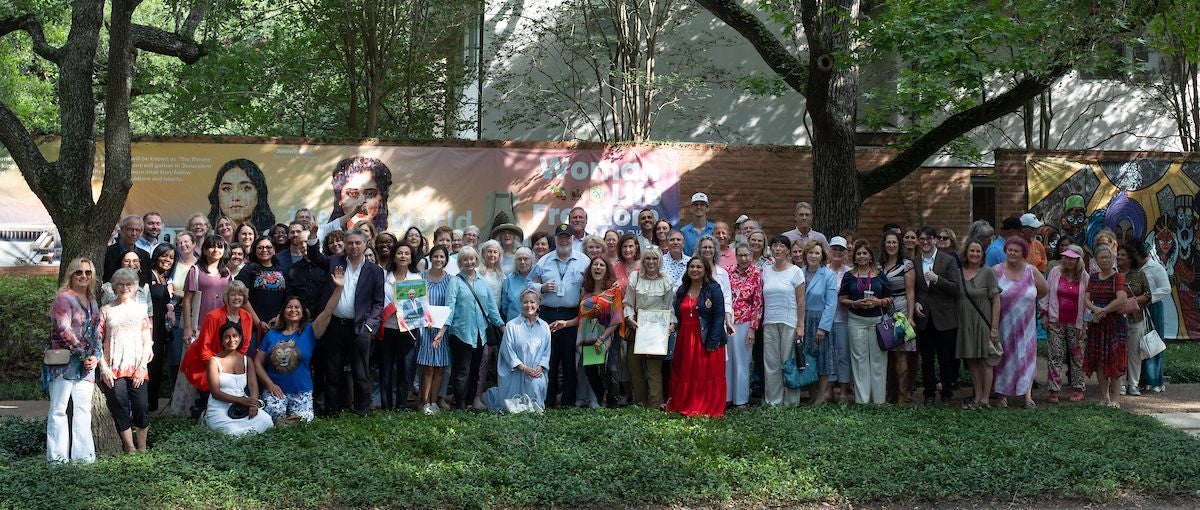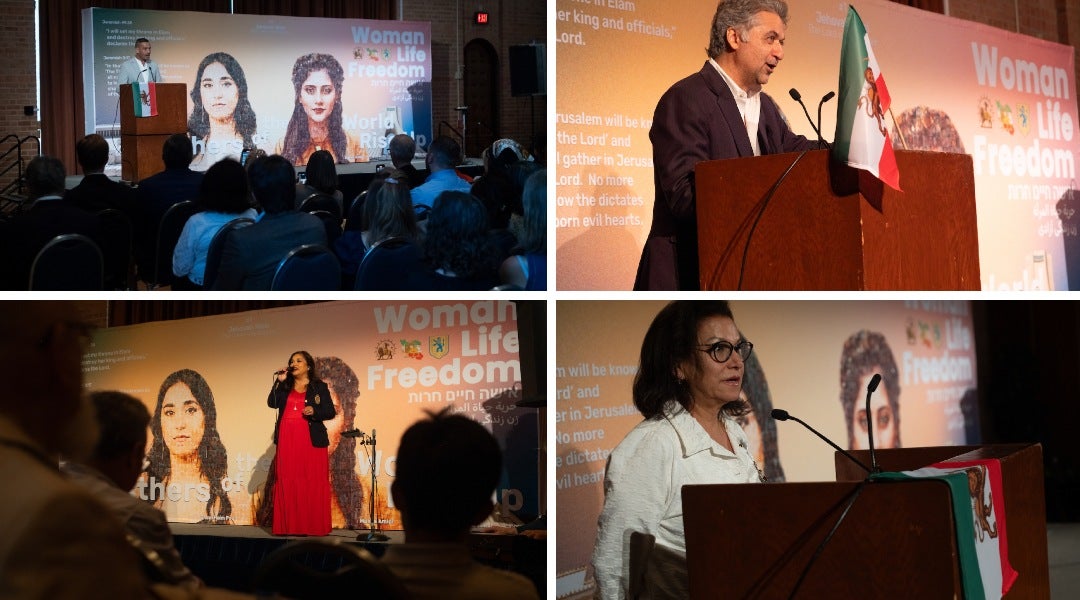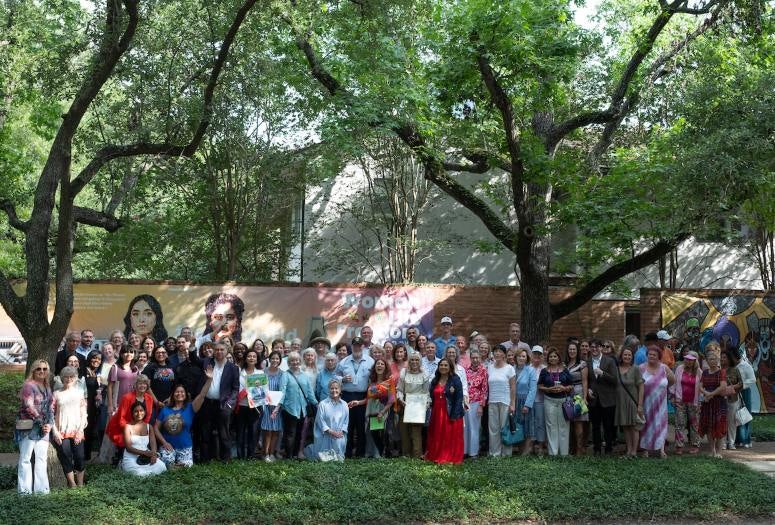
A powerful work of public art that captured global attention when it first appeared on the facade of the Jerusalem Tolerance Museum is now making history on American soil. The “Woman Life Freedom” mural, created by Iranian-American filmmaker and activist Hooman Khalili, was recently unveiled at Rice University, becoming the first temporary installation of its kind on a U.S. college campus.
The movement, formally endorsed by Israel, serves as a “bridge between cultures” in its expansion to the U.S., where college campuses have become sites for debates and engagement for free speech, human rights and the fight against antisemitism, Khalili said.
The mural is formed from over 14,000 mosaic tiles to honor two women whose stories have become global symbols of resistance and resilience:
- Mahsa Amini, a 22-year-old Kurdish Iranian woman whose death in police custody in 2022 sparked mass protests against Iran’s regime. Her portrait stands for the more than 1,000 lives lost in the fight for women’s rights in Iran.
- Shirel Haim-Pour, a 20-year-old Iranian Jewish soldier killed during the Oct. 7 Hamas attacks, whose image represents the 1,200 lives lost and the 240 hostages taken that day.
More than 100 people attended a gathering at Rice Memorial Center’s Grand Hall to hear Khalili speak before the unveiling June 5. His goal is to raise awareness about the struggles of Iranian women and the need for global solidarity.

“These murals ignite a movement the world cannot ignore, and these murals make you take pause and pay attention,” Khalili said. “When you stand with these women, you’re not just supporting human rights; you’re fighting antisemitism, you’re defending truth and you’re declaring the Middle Eastern women have a voice and deserve to be free.”
The effort to bring the mural to Rice was spearheaded by Moshe Vardi, University Professor and the Karen Ostrum George Distinguished Service Professor in Computational Engineering, and Craig Considine, senior lecturer.
Vardi reflected on the women honored by the mosaic.
“The bravery of these two women would inspire us to fight radicalism and pursue peace, depart from evil and do good, seek peace and pursue it,” Vardi said.
Considine also spoke about the importance of the mural.
“This mural is more than art,” Considine said. “It’s more than quotes. It’s more than colors, and it’s more than tiles. It is a profound statement of interfaith solidarity and the enduring fight for global human rights.”
“Woman Life Freedom” will remain installed at the university’s Multicultural Center throughout the summer.

